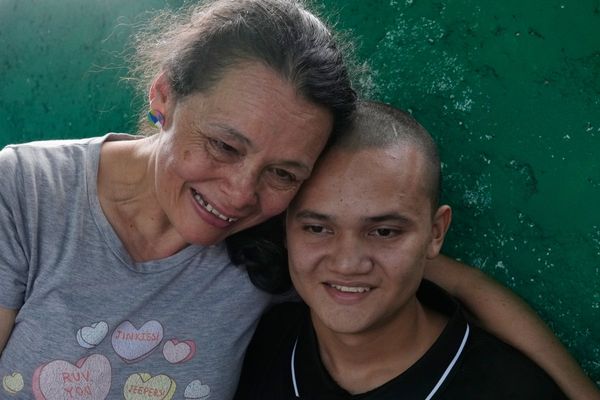Gender reveals have become increasingly popular with families anxiously waiting to see if their newest addition will be born a boy or a girl. But despite popular belief, it’s not a coin toss, according to a new study.
A study published in the Science Advance journal Friday found families have a “unique probability” when it comes to whether they will have a boy or a girl and there are certain factors influencing the odds.
Researchers analyzed just over 58,000 women with two or more singleton births from 1956 to 2015, finding mothers with three or more kids were more likely to have children of the same sex.
Rather than a 50-50 chance of having either a boy or a girl, families with three girls had a 58 percent chance of having another girl, and families with three boys had a 61 percent chance of having another boy.
So why does this happen?
Researchers point to the mother’s age when she gives birth and genetics.
Women who started having kids after the age of 28 were slightly more likely to have children of the same sex. The study also identified two genes associated with giving birth to only boys or only girls.
Jorge Chavarro, the senior author of the study and a professor of nutrition and epidemiology at the Harvard T.H. Chan School of Public Health, told The Washington Post, “We don’t know why these genes would be associated with sex at birth, but they are, and that opens up new questions.”
There are some limitations to the study including that there was no data on fathers.
Additionally, an expert outside of the study warned about the study’s genetic analysis.
Iain Mathieson, a professor of genetics at the University of Pennsylvania Perelman School of Medicine, told the Post the analysis was based on a relatively small sample and could be influenced by other factors.
Researchers in the study concluded more research was needed to study the extent to which the factors mentioned explain why some families are more likely to have children of the same sex.
“Until then, families desiring offspring of more than one sex who have already had two or three children of the same sex should be aware that when trying for their next one, they are probably doing a coin toss with a two-headed coin,” the authors wrote.
Vaping while pregnant can change your baby’s skull shape — even without nicotine
Families, kids most at risk of losing HUD housing with Trump’s proposed time limits
Trump DOJ asks court to unseal Epstein grand jury testimony: Latest updates
New study reveals the exercises that can help with insomnia
Magic Mushrooms could lengthen your lifespan
New test could help to detect Alzheimer’s sooner
Number of nicotine poisonings in kids skyrockets with pouches becoming more common
Being a couch potato has long been blamed for obesity - a new study has found the real cause







